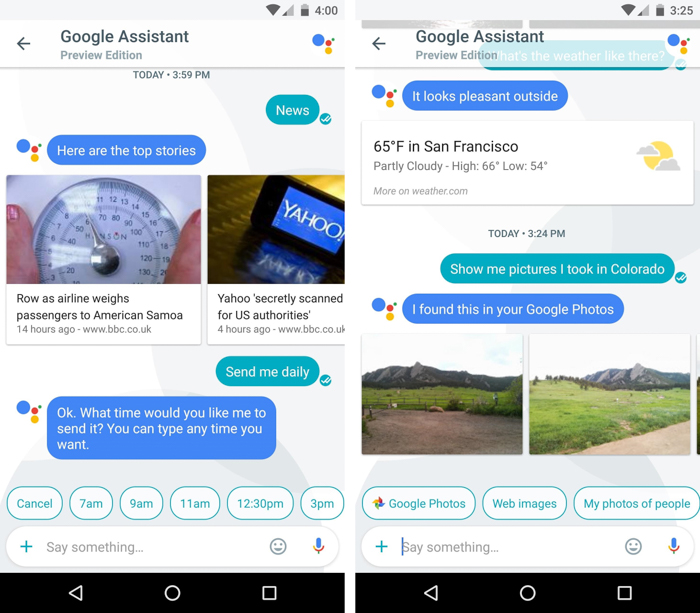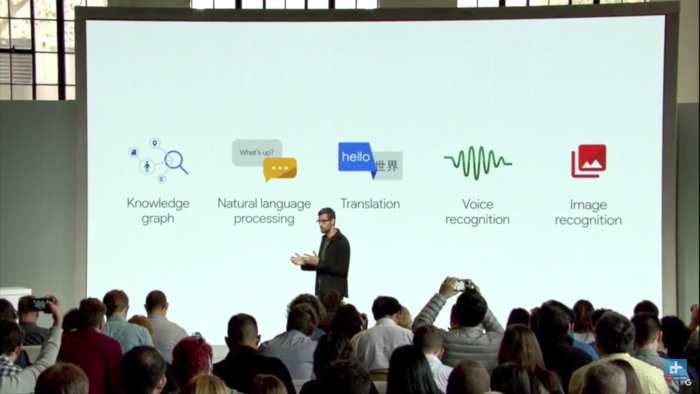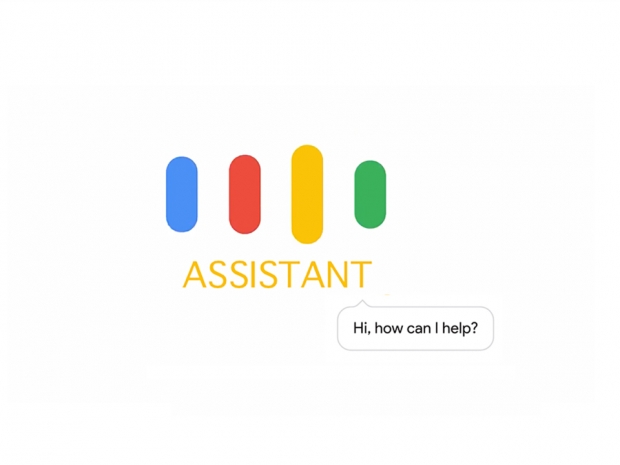The company now has two voice-activated products, Google Now and Google Assistant. The first began as the Google Search app with legacy functions of the company’s core search engine product and works in a simple speech-to-text format, showing web and image results just like the Google homepage does. In 2012, the company then integrated a natural language interface to answer questions, make recommendations and return results from a variety of Google web services and called the product Google Now. The result was more similar to Microsoft’s Cortana and Apple’s Siri in that it could predict the information a user wanted based on their search habits.
Google Assistant aims to learns habits and user personalities
Four years later, the company now has a successor called Google Assistant, which uses a deeper layer of AI and natural language processing to learn about a user’s personal habits and personality, including favorite apps and services, restaurants, frequently asked questions, and identity information including age, gender, birthday and any other details that can be verbalized during a normal conversation. As a result, this means it is extremely important for Android users who value their privacy to proceed with caution on what information to give out to Google, and to third-party strangers in return.
Google Assistant features (via Android WonderHowTo)
A text-message interface for AI conversations
Google Assistant can schedule your calendar, set alarms and adjust hardware settings on your smartphone just like Google Now, but it also offers to return search results in short-formed, one-sentence answers with the style of a more text-message themed interface. At the core of the new service is a combination of web search advancements, DeepMind artificial intelligence and natural language processing that Google says will only get better as the algorithms continue to recognize user patterns and behaviors.
“These are the early days, but we are committed to this vision and we are going to work on it for a long time,” says CEO Sundar Pichai.

Google Assistant announcement (via DigitalTrends)
Although Google already remembers everything a user has searched for, the company’s new Assistant automatically archives all conversations made using the interface and will use this information to improve the usefulness of the product over time. Of course, there is an option to delete past interactions at any time in the conversation history window.
The application will be able to do things like send a routine newsfeed to a user’s conversation at scheduled times, bring up past photos from particular dates and times, select transit routes and find bus stops, translate phrases, and perform image recognition calculations using machine learning.
On the Common Questions page, Google says that Assistant may use conversation history to deliver more personalized ads to make conversations more specific and relevant, though there is no telling how much of this information is also sent to government agencies for collection purposes.
Availability
For now, Google’s new Pixel smartphones and its new standalone Home device are the only products with Assistant capability. The company says that a future Android software update will bring the service to more devices soon.




